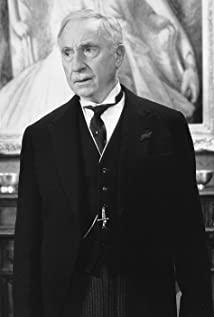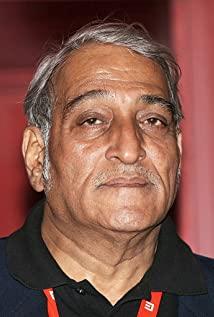Because of the few words on the Chinese Internet, I have always had a preconceived negative impression of Gandhi. After reading "Gandhi Biography", I have greatly reversed my prejudice. In general, I am worthy of the title of "Mahatma". Of course, my research on Gandhi is limited to this movie. If this imdb top250 movie has serious butt problems, the following conclusions are for reference only.
Gandhi's historical achievement, or extraordinary achievement, was to gain independence from the British Empire in the most Indian way at the least cost. As Chinese, we feel unreasonable about his "non-violence and non-cooperation". It is said that when Chiang Kai-shek visited India, Gandhi sold his ideas to Chiang Kai-shek, and Chiang Kai-shek was greatly disappointed. This anecdote was summarized on the Internet as "you have your mace, I have my heavenly cover." In fact, it is biased.
India and China are very different. They face different oppression by foreign powers. How can they fight the same way? The situation India faced at that time was that it had been carefully cultivated by the British Empire for nearly a hundred years, and had to rely on Britain in terms of culture and system. The United Kingdom completely used India as a supplier of raw materials and a dumping ground for industrial products, which interrupted the development track of India's own civilization and kept the original civilization of the subcontinent in an unenlightened state in the 19th century. In this case, there are 350 million Indians who want to fight against the industrialized Britain. If China's logic of "removing the Tartars and restoring China" is followed, the final casualties may be as many as the number of bullets in the British stockpile. You must know that Gandhi witnessed the dimensionality reduction hammer from the industrialized country in South Africa. 350 million supporters are Gandhi's only resource. How to get the most benefit with the least investment, non-violence and non-cooperation is a coup that can only be devised by God. Of course, this concept cannot be copied, after all, Gandhi caught up with the two world wars when Britain was overwhelmed.
And with the support of 350 million people, this is Gandhi's true light. Cohesion on this scale is an incredible miracle in every culture, and Gandhi did it the Indian way. The Chinese find it difficult to understand, and many people still don't understand the Chinese! We are more than one billion people, we don’t have a unified religion, we speak our own dialects, we are full of discrimination, and we don’t even compromise on the sweetness and saltiness of zongzi. In fact, there has never been a satisfactory answer to this question, and I think it is Chinese characters that unite us. And the differences within India are much greater than ours, but almost all Indians believe in an idealized pure divinity, Gandhi achieved pure idealism, and this aura of divinity unites 350 million people. It is called "Mahatma".
Another criticism of Gandhi is that he rejected modern civilization, advocated a return to the farming civilization of men and women weaving, and played the role of spinning people all his life. After watching the movie, I have to laugh at those who hold this view. Gandhi's return to basics is actually a helpless means of economic struggle, which is not fundamentally different from our support for domestic products. India does not have any domestic products to support, the only handicraft industry is textiles. Gandhi's idea was to make India economically self-sufficient so that it could be freed from British economic control. Although it seems to be contrary to modernization, the dumping of British industrial products at that time has caused a large number of Indian craftsmen to face the dilemma of starvation to death. If a large number of civilians in India go bankrupt, they will have to become the source of soldiers in World War II. At that time, India will lose its most precious resource - people, and Indians are Gandhi's basic plate.
This has to feel the tragedy of colonial countries. The so-called colony, I think, is a matter of division of labor. Everyone needs food, clothing, housing, and transportation, and food and cotton will not emerge out of thin air from office buildings. Someone has to do the dirty and tiring work, and these jobs must be done by someone else, so the income of this dirty work must be so low that you can never turn over but starve to death, so that a part of the labor force can be locked. Human beings adopted slavery at the beginning. As the scale of production expanded, the cost of managing slaves even exceeded the benefits of slave output, so slavery collapsed. Then came colonialism, I finished industrialization first, conquered you with guns, and then traded advanced industrial products for your agricultural products. If I were a farmer, I would use a new hoe more efficiently, produce more output, and exchange for new and interesting daily necessities. On the surface, this exchange is a win-win situation, but the essence is that British workers exchange higher labor productivity for the labor of Indian farmers. Indian farmers need to support themselves and British workers at the cost of working all day. British workers, however, can take 8-hour weekends off and say goodbye to the labor of picking up big dung. This is the essence of dumping. However, this system is relatively fragile. The entry of new industrial countries or the upgrading of skills of agricultural countries will upgrade colonial trade into a market economy. The consequence is that British workers and Indian workers have to work hard to compete for eight hours and two days off. This is not what the British Empire wants. So colonial countries will establish a closed economic system, in this system, Indians need to provide cotton, servants, wheat, tea and so on for the entire empire on which the sun never sets. While the British are responsible for afternoon tea, opera, polo, and making sure that the Indians' agricultural surplus is not enough to invest in industry and education, it really hurts.
Under the colonial economy, Gandhi had no choice but to get rid of the temptation of British industrial products and lead the Indians themselves to frugally consume surplus food to buy industrial equipment and develop education. Is there anything wrong with this idea? Isn't that the case when China was just founded? Many people say that China and India started at the same time, and India's cards are much better than China's. Actually absurd. Don't forget that China has been striving to build an industrial base since the reform and reform period. Although it looks much poorer than India after the war, it is only a book number. China has Zhan Tianyou, Zhu Kezhen, Qian Xuesen, and a large number of valuable industrial workers. India has ? So accusing Gandhi of resisting modernization can be laughed off. Gandhi grew up in England, would he reject modernization? And people born in this way can wear sackcloth all day long, which is really respectable.
In the end Gandhi died on one of the most difficult problems in India - religious conflict. He was assassinated by a radical Hindu for making too many concessions to Muslims. It's really funny. Hundreds of millions of Indians have been slaughtered and exploited by the British for so long. They should have shared the same enemy, but once they became independent, Hinduism and Islam immediately turned against each other, and a civil war almost broke out. This energy is used against the British, perhaps without the Mahatma. From another perspective, this religious conflict can also be a caste conflict, and God is a caste! Most of the Indians who converted to Islam were originally low castes in Hinduism. In order to get rid of the fate of slavery for generations, they joined Islam called brothers and sisters - but Islam in India and Pakistan also began to divide. Sex, really is the Ganges in life and the Brahmins in death - for them, Islam is the umbrella that protects them from Hindu persecution. And Hindus think that these untouchables want to be equals with themselves by vainly trying to make a robe, it is really unreasonable!
Gandhi, as a saint with a divine personality, has long criticized this inequality. Even the upper-class mainstream thinking in India has absorbed the idea of human rights equality, but it's all said and done. Indian people don't eat this. As a Muslim leader, Jenner was extremely pragmatic throughout the incident. His act of founding Pakistan is regarded as the father of the country by Muslims, but is regarded by Indians as a traitor to divide the motherland. If history can, if he did not split Shuangba and India, then there would be no tragedy of breaking up the ethnic group, but will the Muslims who stay in India be bloodbathed? As a Muslim leader, it is understandable that he chose the safest way - to start another fire - to protect his people. Can Gandhi quell religious conflict if Jenner does nothing? There will be 2 less countries in the world (Pakistan and East Pakistan). It's really hard to say. Maybe Gandhi as a Brahmin never had Jenner's full trust?
India, a geographical term, should not be unified. When the Europeans arrived, they used ancestral rifles to wipe out one kingdom after another. These kingdoms fought against each other from generation to generation. They did not understand the language and race. The only thing they have in common is that they all lost to the UK. The British collectively referred to this land as India just for the convenience of management. If the Brits leave, what's left should be a mess of loose sand. But then Gandhi appeared, and he illuminated the entire subcontinent with an incredible holy light. Let the people here have the illusion of being connected to the roots. While converts to Islam are determined to break free from Hindu control, India is only missing two pieces and will not be torn apart. It is a miracle that the remaining Indians can still recognize the same flag.
So stop laughing at the weirdness of India. Unlike other countries that have been rich in history, people have done their best to survive.
View more about Gandhi reviews











